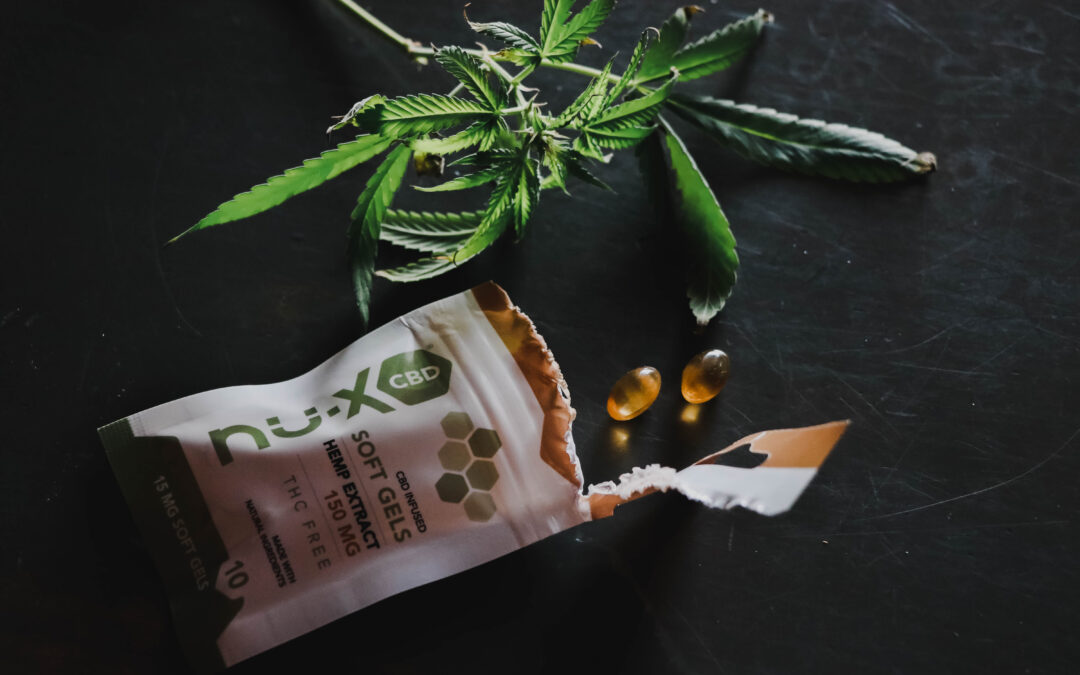CBD products have become increasingly popular, with more people considering whether a product containing the novel food would help them or be right for them.
Unfortunately, as is so often the case, misinformation and mythology can so often dominate the discussion about CBD, whether condemning it or questioning its legality or making claims that have limited or no scientific consensus.
Not only is this annoying for anyone who knows much about CBD, but can make it hard for people to make an informed choice regarding products that may or may not be right for them.
Here are some of the most common myths that are spread about CBD.
It Cannot Make You High
One of the most common and most incorrect myths about CBD is that it can make you high. The confusion for this is perhaps in the name and origin of the compound itself.
CBD is short for cannabidiol which is a compound found in hemp and cannabis, but it is not the active ingredient in cannabis that has the intoxicating effect.
That, instead, is tetrahydrocannabinol, or THC, which is the psychoactive ingredient in cannabis that gets you high. However, CBD is, in many places, legally required to be derived from hemp, which has an exceptionally low THC content and cannot get you high.
If you use broad-spectrum or CBD isolate products, even this tiny amount of THC is not on the product.
CBD Is Not Illegal
Because CBD can (but seldom is in practice) be extracted from cannabis, people assume it is illegal because cannabis is a Class B drug.
However, as stated above, CBD is most commonly derived from hemp, a plant that has little to no THC. In fact, the legal guidelines for getting a licence to cultivate hemp requires a THC content level of less than 0.2 per cent.
The legal status of CBD has changed to be a novel food, similar to chia seeds and tend to require authorisation before they are allowed to appear on the market.
All Forms Of CBD Are Not Equal
CBD is a collective term for a range of products, extraction and filtration methods that have CBD extract in them, and these different processes and results can cause the end product to have different effects.
Generally, CBD oils can be broken down into three main groups:
- CBD Isolate – a purified extract that contains just CBD.
- Full-Spectrum Extract – An extract that contains not just CBD but also THC, all the terpenes, flavonoids and minor cannabinoids contained in the plant.
- Broad-Spectrum – An extract that does not contain THC but generally contains a range of other compounds besides CBD, such as flavonoids and terpenes.
Each of these categories has a different effect and in some cases different recommended dosages.
Full and Broad-spectrum CBD, according to some studies, benefit from the entourage effect, a phenomenon where the combination of different compounds creates a different effect than each component would in isolation.
As well as this, different sources of CBD have different levels and qualities of CBD extract, with industrial hemp used to make hemp seeds and fibres having significantly less CBD than so-called “craft CBD” made with strains that are high in CBD but low in THC, and so on.
The extracts from each of these plants will be quite different, so it is a mistake to assume all CBD is the same.
Finally, as has been explored in other articles, the extraction process for CBD can also lead to different products; carbon dioxide extraction can produce a better quality CBD extract but can also cost more to make and therefore buy.
CBD Does Not Work Immediately
Perhaps a victim of marketing, some people have an assumption that CBD will immediately enter your system and create a noticeable effect, which is not really the case for anything edible.
CBD will take some time to enter your bloodstream, but exactly how long will depend on the method you use to ingest it. If you take gummies, for instance, it may take longer for them to break down than placing a few drops or an oral tab under your tongue.
CBD Can Sometimes Be Medically Prescribed
There is often an all-or-nothing belief regarding CBD, that either it is a cure-all with no proof or has no medical benefits at all.
In the UK, a CBD oil known as Epidyolex can sometimes be prescribed for children and adults with rare forms of epilepsy, although in those cases it tends to only get prescribed as a last resort when other medications fail.
Similarly, other cannabis-based medicines are prescribed for multiple sclerosis or for people dealing with the side effects of chemotherapy. These medicines will be prescribed by a doctor for people dealing with these conditions.

